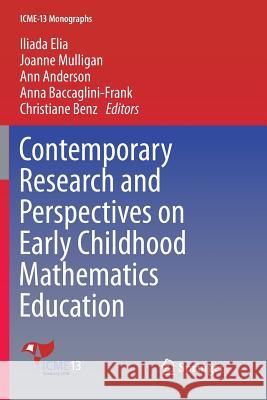Contemporary Research and Perspectives on Early Childhood Mathematics Education » książka
topmenu
Contemporary Research and Perspectives on Early Childhood Mathematics Education
ISBN-13: 9783030087883 / Angielski / Miękka / 2019 / 326 str.
Kategorie:
Kategorie BISAC:
Wydawca:
Springer
Seria wydawnicza:
Język:
Angielski
ISBN-13:
9783030087883
Rok wydania:
2019
Wydanie:
Softcover Repri
Ilość stron:
326
Waga:
0.46 kg
Wymiary:
23.39 x 15.6 x 1.78
Oprawa:
Miękka
Wolumenów:
01
Dodatkowe informacje:
Wydanie ilustrowane











